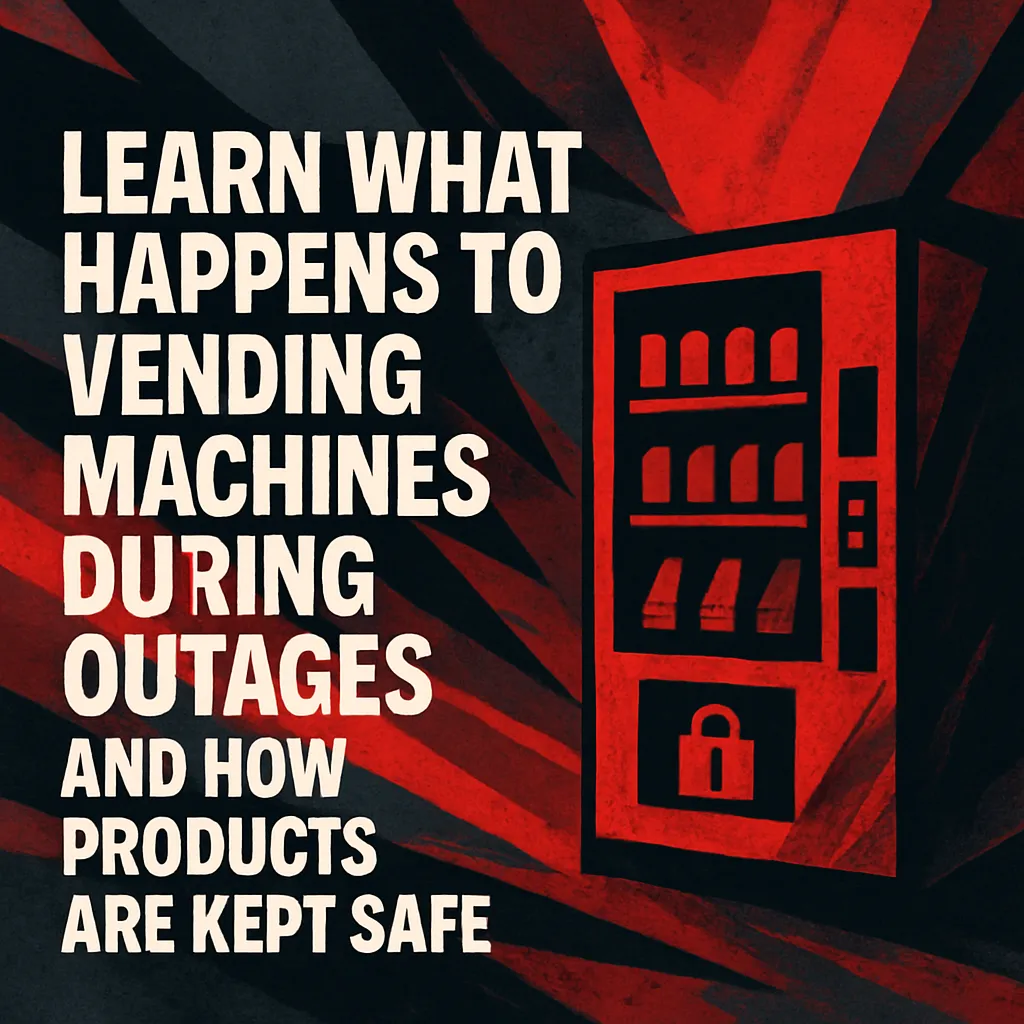Do Vending Machines Work During Power Outages?
Learn what happens to vending machines during outages and how products are kept safe.
Back to Vending FAQs ResourcesLearn what happens to vending machines during outages and how products are kept safe.
Back to Vending FAQs ResourcesMost standard vending machines rely entirely on electricity to function, meaning a power outage will halt all operations. However, some newer models and those in facilities with backup power can offer continued service or protect products.
![]() Standard machines cease operation during power outages
Standard machines cease operation during power outages
![]() Refrigerated units maintain temperature for a limited time due to insulation
Refrigerated units maintain temperature for a limited time due to insulation
![]() Devices automatically restart once power is restored
Devices automatically restart once power is restored

Power outages can be a nuisance for any business, but their impact on vending machine operations is a common concern. Generally, when the electricity goes out, standard vending machines will cease to function. This means no product dispensing, no credit card processing via their payment systems, and no refrigeration for perishable items. This can lead to frustration for customers and potential product loss for operators, especially with refrigerated vending machines.
For machines storing drinks, snacks, or fresh food, power-loss means a direct impact on product integrity. While vending machines are insulated, this insulation can only maintain product temperature for a limited time, typically a few hours, depending on the quality of the machine and the ambient temperature. After this period, perishable items are at risk of spoilage. Operators often implement protocols for checking machines after prolonged outages to ensure all products remain safe for consumption. Understanding if your machine needs to be connected to the internet is also a factor, as many modern cashless systems rely on reliable power and WiFi.
Most modern vending machines are designed to automatically power back on once electricity is restored. They often have internal memory that records sales data and machine status before the interruption. However, a sudden power surge upon restoration can potentially damage sensitive electronic components. For this reason, some advanced machines or those in critical locations may be connected to surge protectors or uninterruptible power supplies (UPS) to mitigate risks. For installations in facilities like hospitals or large corporate campuses, vending machines might be linked to the building's emergency power generators, ensuring continuous operation even during widespread blackouts. This can be a key consideration for vending services in government buildings where continuous availability is crucial.
Cashless payment systems, including credit card readers and mobile payment apps, are entirely dependent on continuous power and network connectivity. During an outage, these systems are inoperable. If a transaction is interrupted mid-process by a power failure, customers typically won’t lose their funds, as the transaction often fails to complete. However, it's always good for operators to monitor logs for any discrepancies. Ensuring the machine has its power requirements well-defined during installation can help prevent future issues.
During a power outage, most standard vending machines cease to function, meaning they cannot dispense products, process payments, or maintain refrigeration.
Some advanced vending machines, particularly those with internal battery backup systems or connected to facility-wide generators, can offer limited functionality or maintain temperature during short outages.
The duration depends on insulation quality and ambient temperature, but generally, products in a well-insulated refrigerated vending machine can stay cool for a few hours after a power loss.
The machine itself is typically not damaged by a power outage, but perishable contents (like fresh food) can spoil if refrigeration is lost for too long.
Most modern vending machines are designed to automatically power back on and resume normal operation once electricity is restored.
High-quality insulation helps maintain product temperature, and some machines have temperature monitoring systems that alert operators to potential spoilage risks.
No, cashless payment systems, like card readers and mobile payment options, require power and network connectivity to function and will not work during an outage.
Machines in facilities with reliable backup generators, or newer models with integrated battery systems, tend to be more resilient.
Power surges can potentially damage electronic components. Many vending machines are equipped with surge protectors, or operators may install external ones for added protection.
Typically, an interrupted transaction due to a power outage will result in a lost selection and no product dispensed. Funds, if processed, might be reversed or require a refund request.